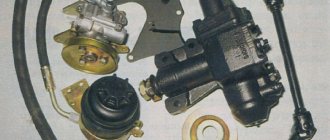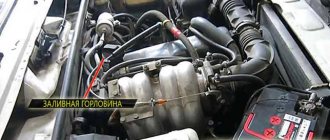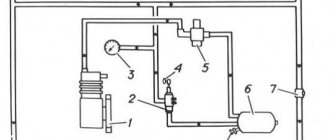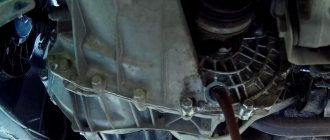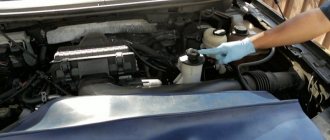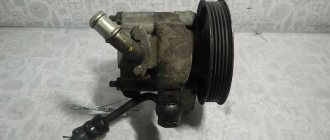The Ford Focus 3 is equipped with power steering, a system designed to facilitate the process of driving and maneuvering. Also, thanks to the device, the specified trajectory is more stable and unambiguous. For proper operation of the power steering, periodic maintenance, oil changes, and level monitoring are required.
We recommend inspection every six months and replacement after 2 to 5 years, taking into account the conditions in which the machine is operated. We should not forget about problems that lead to the need for premature replacement of workers.
How to fix the problem
Problems with oil leakage in the power steering should be solved according to the reason that caused them. If the steering rack is faulty, then a technical inspection is carried out. You should not immediately replace it with a new unit using repair kits; many service stations restore its functionality.
The most expensive in terms of costs may be the decommissioning of the power steering pump. Most often, oil seals will need to be replaced, but it can also be a breakdown of the impeller or bearing faults. The main sign of pump failure is the feeling of a tight steering wheel or the appearance of an extraneous hum. If you do not have sufficient experience in diagnosing pump faults, it is better to entrust this procedure to a professional car mechanic.
Oil leakage at joints and lines is accompanied by replacement of the most worn areas. After this, all suspicious areas are tightened again, after which observations are made again for the appearance of leaks on a cold and hot engine.
To avoid having to deal with a hydraulic booster leak, experienced motorists give the following operating recommendations:
- regularly check the level of working fluid in the unit;
- when parked for a long time, the wheels must be aligned, and this is especially true in the winter;
- in order not to damage the pump, it is not recommended to leave the steering wheel in extreme positions for more than 10 seconds;
- periodically inspect the condition of the steering tips, the degree of wear of the boots, as well as the rack itself. Replacing each of these components will cost less than purchasing a complete new rack or amplifier.
As soon as suspicions arise regarding power steering malfunctions, you should not delay repairs. If necessary, it is trusted to specialized service stations.
Leak in power steering pump
The problem of lubricant leakage often begins in the power steering pump. This is due to the fact that this node is under the influence of significant loads. Over time, this leads to a violation of the tightness of the unit itself or its connections and components. First of all, you need to pay attention to the presence of visible damage to the lines and hoses through which the oil circulates in the unit itself.
If visual damage is detected, then such hoses must be replaced if repair is impossible. As for the pump itself, it would be useful to disassemble it and replace the seals with new ones. In most cases, this is enough to fix the problem. Problems with a leak in the pump are indicated by an increase in the force required to turn the steering wheel. Before reassembling and reinstalling, it is recommended to wipe all components of this mechanism with white spirit.
Why did it happen so?
Perhaps the automatic requests do not belong to you, but to another user accessing the network from the same IP address as you. You need to enter the characters into the form once, after which we will remember you and be able to distinguish you from other users exiting from this IP. In this case, the page with the captcha will not bother you for quite a long time.
You may have add-ons installed in your browser that can make automatic search requests. In this case, we recommend that you disable them.
It is also possible that your computer is infected with a virus program that is using it to collect information. Maybe you should check your system for viruses.
If you have any problems or would like our support team, please use the feedback form.
The Ford Focus 3 is equipped with power steering, a system designed to facilitate the process of driving and maneuvering. Also, thanks to the device, the specified trajectory is more stable and unambiguous. For proper operation of the power steering, periodic maintenance, oil changes, and level monitoring are required.
We recommend inspection every six months and replacement after 2 to 5 years, taking into account the conditions in which the machine is operated. We should not forget about problems that lead to the need for premature replacement of workers.
Violation of the tightness of hoses and tubes
This reason is one of the most common, but it is also the easiest to eliminate. And repair work in this case is not too expensive. First you need to inspect all connections, seals, tubes and lines for strength and tightness. Places that are in doubt should be dismantled and re-strung. It is quite possible to perform such operations yourself, in a garage, and save on repair costs.
Power steering high pressure hose
Causes of oil loss in power steering
Before you think about how to solve the problem with lubricant leakage, you need to understand why this happens. Repair work will depend on this to eliminate oil leakage from the power steering. Experts count 3 main reasons:
- Steering rack leaking.
- Leaking power steering pump.
- Poor tightness of tubes and hoses connections.
Constantly squeezing oil out of the power steering reservoir leads to a decrease in its level, down to a critical level. Before performing an inspection, find the tank and see at what level the working fluid is in it. It is used in a special type and resembles the same lubricant that is poured into automatic transmissions. The oil itself also loses its properties during operation - it burns out and becomes contaminated, not to mention possible leaks. Experienced car mechanics advise making a complete replacement every 70-100 thousand kilometers traveled by the car.
To find out about the properties of the lubricant, you can test a couple of drops with a regular syringe. They are poured onto a blank sheet of paper. If the oil has a characteristic dark color (black or rich brown), then it's time to change it. It is also recommended to pay attention to its smell - it is unacceptable if it resembles the smell of burnt oil.
Steering rack leak
One of the most common malfunctions that owners of cars equipped with a power steering mechanism have to face. Typically, the following symptoms indicate a leaking steering rack:
- the appearance of noticeable play in the steering wheel when driving a vehicle;
- the appearance of a knocking sound from the steering nut while driving - usually it can be clearly heard through the steering wheel;
- difficulty turning the steering wheel, which requires more and more effort to turn it;
- the appearance of extraneous noise in the operation of the amplifier pump.
If any of the symptoms given here are confirmed, then there is a very high probability of a problem with the steering rack leaking and you should start by inspecting this particular unit.
Oil leak in power steering rack
Stages of work
To replace the power steering lubricant, do the following:
- Drain the used liquid. Stop the engine and open the fluid expansion tank. Unscrew the bolts that secure it and disconnect the pipes connected to it. This will lead to consumables leaking out, so place a container in advance (maybe a cut-off bottle) with a volume of at least two liters.
- We connect the clamp. Using long-end pliers, hook the clamp from the return line and move it to the side. The clamp is connected to the expansion tank with consumables.
- We provide access. Disconnect the return line pipe, and then install the fitting from a previously prepared hose. Instead of a pipe, a tube with a plug is used.
- We fill in new material. Open the reservoir cap and fill it with new lubricant. Consider some points here. While you are adding lubricant, your assistant should start the power unit. When filling, monitor the color of the consumable material, which is pumped out of the reservoir under the influence of pressure in the pump. When fresh lubricant comes out of the tank, differing from the used one in color and smell, the engine must be stopped. When filling, do not allow air to enter the system, this will lead to the formation of plugs that will subsequently have to be removed.
- The final stage. Top up to the maximum level, then start the engine and let it run. Make a test drive and check the lubricant level again. Add fluid to the system if necessary. All components are assembled in reverse order.
Photos of replacing consumables are shown below.
1. Drain the lubricant from the reservoir and turn off the return line 2. Fill in new oil into the hydraulic steering system
When replacing lubricant, do not allow it to come into contact with the timing belt, otherwise it will cause rapid wear.
